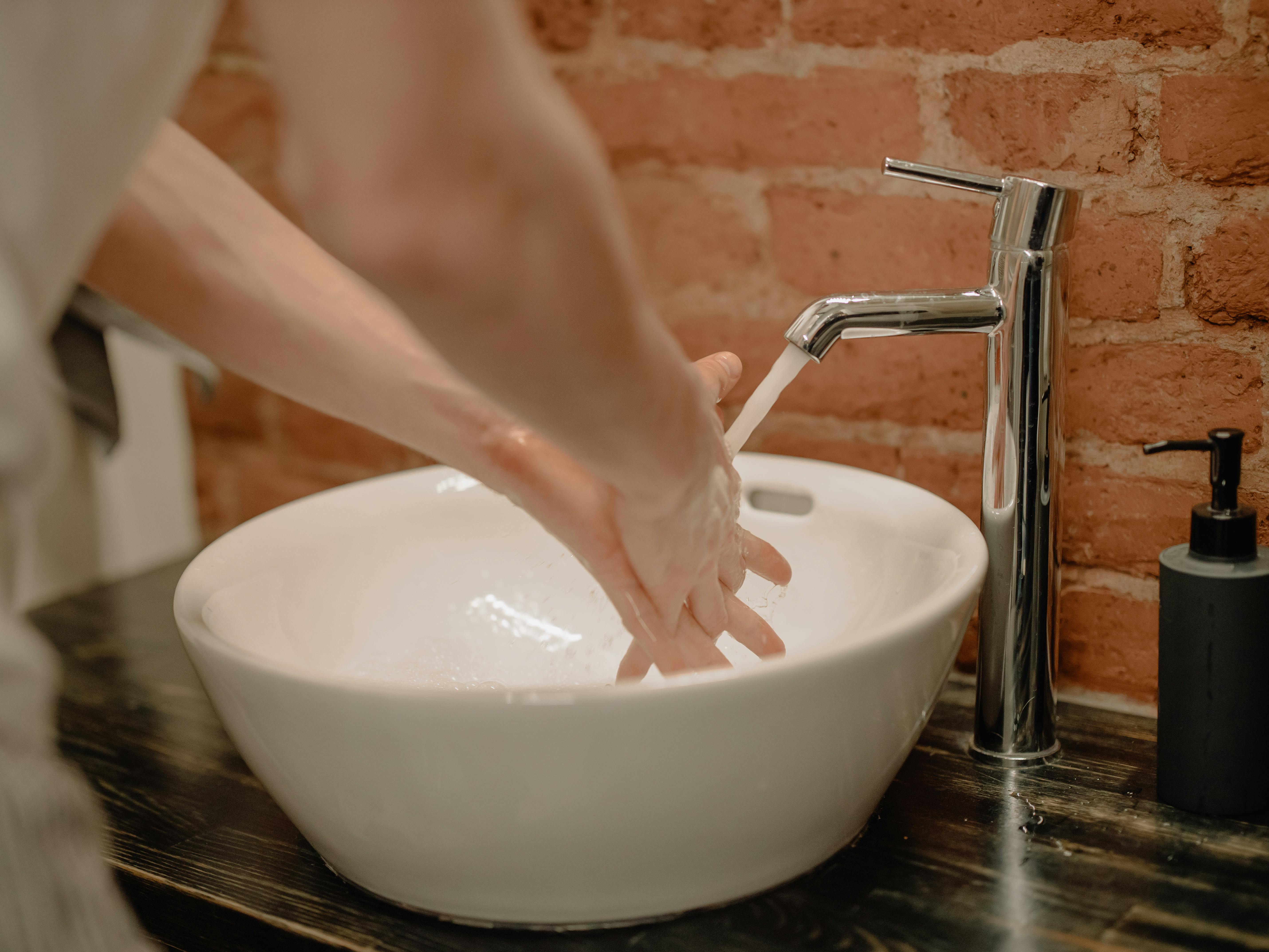Distilled water has been commonly used for sinus rinses, but is it safe? While there are some benefits to using distilled water, it is important to be aware of the potential risks and understand how to use it safely. In this article, we will discuss the safety of using distilled water for sinus rinses, what the benefits are, and how to use it properly.Distilled water is water that has been boiled into steam and then condensed back into liquid form. This process removes impurities, minerals, and other contaminants from the water, making it safe to drink. It is used for drinking, making baby formula and other food preparation, medical procedures, car batteries, steam irons, aquariums and more.
What is a Sinus Rinse?
A sinus rinse is a technique used to clear the nasal passages of mucus and irritants. It involves using a saline solution to flush out the sinuses. The solution helps to clear out allergens, bacteria, viruses, and other debris from the nasal cavity. It can also help reduce inflammation and provide relief from allergies, colds, sinus infections, and other sinus-related issues. Sinus rinses are typically done with a neti pot or squeeze bottle – both of which can be purchased online or at most pharmacies. The process is simple: you fill the container with lukewarm sterile water or saline solution, tilt your head slightly to one side, and gently pour the mixture into one nostril while keeping your mouth open. The liquid will then drain out of the other nostril. You should repeat this process for each nostril several times until all of the solution has been used up.
Sinus rinses are generally safe when done properly but it is important to take precautions when using them. It is important to use only sterile water or saline solutions that have been specifically designed for sinus
Is Distilled Water Considered Safe for Sinus Rinse?
Yes, distilled water is considered safe for use in a sinus rinse. This type of water has been purified through a process of evaporation and condensation, which removes impurities and minerals that can irritate the delicate tissue of the nose and sinuses. The lack of minerals also makes it less likely to cause an overgrowth of bacteria in the nose or sinuses. The US Food and Drug Administration (FDA) has approved distilled water for use in medical devices such as nebulizers and humidifiers. It is also recommended by many doctors and pharmacists for use in nasal rinses or irrigation systems.
Distilled water is typically available at most grocery stores, pharmacies, and health stores. It is important to read the label carefully to make sure that the product contains only distilled water, as some products may contain additional ingredients such as flavorings or preservatives. If you have concerns about using distilled water for your sinus rinse, you can speak with your doctor or pharmacist to see if they recommend an alternative.
Advantages of Using Distilled Water for Sinus Rinse
Distilled water is an ideal choice for sinus rinsing due to its sterilization process. Distillation removes impurities, including bacteria and viruses, from the water, making it safe for use in a sinus rinse. It also removes minerals, such as calcium and magnesium, which can lead to a build-up of sediment in the nasal passages over time. This makes distilled water less likely to cause irritation than tap water or bottled water. Additionally, distilled water has a neutral pH level, making it gentle on the delicate mucous membranes of the nose and sinuses.
Another advantage of using distilled water for a sinus rinse is that it helps to flush out irritants and allergens more effectively than tap or bottled water. Since distilled water contains no impurities or minerals, it does not leave any residue behind that can clog up the nose and sinuses like other sources of water can. This allows the user to get maximum benefit from their sinus rinse without having to worry about possible side effects from contaminants in their tap or bottled water.
DisAre There Other Alternatives to Distilled Water for Sinus Rinse?
While distilled water is the most recommended solution for a sinus rinse, there are other alternatives that can be used. Normal tap or bottled water can be used as long as it is filtered and free of chemicals, pollutants and minerals. Filtered water can be purchased at most grocery stores. It is important to note that unfiltered tap water may contain bacteria which can cause infection in the sinuses.
If using filtered water is not an option, adding a small amount of salt (about 1/4 teaspoon) to 8 ounces of warm tap water can help reduce the risk of infection. The salt will act as an antiseptic and help stop any bacteria from multiplying. Do not use sea or iodized salt as they may contain iodine which could irritate the nasal passages.
Saline sprays or drops are also available over-the-counter and are another alternative to distilled water for a sinus rinse. Saline solutions are made with sodium chloride, which helps thin out mucus and flush out allergens and irritants from the nose and sinuses. They also have antise

What Are the Benefits of a Sinus Rinse?
Sinus rinses, also known as nasal irrigation or nasal lavage, are a type of treatment for sinus congestion and other sinus problems. They flush out mucus from the sinuses and can help to reduce inflammation in the nasal passages. The main benefit of using a sinus rinse is that it can help alleviate symptoms such as pressure or pain in the face due to sinus congestion, as well as reducing mucus drainage, sneezing, and post-nasal drip. It can also help clear out allergens and other irritants from the nose, reducing allergy symptoms such as itching, sneezing, and runny nose. Furthermore, regular use of a sinus rinse may reduce the risk of developing more serious conditions such as chronic sinusitis or bacterial infections.
Overall, using a sinus rinse is an effective way to reduce the symptoms associated with sinus congestion and other conditions related to poor nasal health. It is important to be sure to use saline solution that is sterile and free from contaminants in order to ensure optimal results. Additionally, it is important to
Potential Risks Involved with a Sinus Rinse
Sinus rinses have been used for centuries as a way to clear out the sinuses, reduce inflammation, and flush away bacteria and allergens. However, like any medical procedure, there are potential risks involved. The most common risks associated with a sinus rinse include: infection, irritation of the nasal lining, and damage to the delicate structures of the nose.
Infection is one of the most serious risks associated with a sinus rinse. If not done correctly, bacteria can be pushed further into the sinuses or even into other areas of the body. To reduce the risk of infection, it is important to use distilled or filtered water that has been boiled for at least five minutes and cooled to body temperature before using it in a sinus rinse. It’s also important to use only sterile saline solution or other products specifically designed for use in a nasal rinse.
Irritation of the nasal lining is another potential risk associated with a sinus rinse. If too much pressure is used when administering the solution or if it’s
Using Distilled Water Safely for a Sinus Rinse
Sinus rinses are an effective way to relieve sinus congestion and help reduce inflammation. However, it is important to make sure that you are using distilled water safely for your sinus rinse. Distilled water is free from contaminants such as bacteria and other impurities, which makes it the ideal choice for sinus rinses. Here are some tips on how to use distilled water safely for your sinus rinse:
1. Make sure that you purchase distilled water from a reputable source. Some sources of distilled water may contain contaminants or chemicals that can be harmful if inhaled. Check the label of the distilled water to make sure it is safe to use.
2. Before using the distilled water for your sinus rinse, read the instructions carefully and follow them exactly as instructed. This will ensure that you are using the right amount of water and that you are not exposing yourself to any potential risks.
3. Make sure that you use a sterile container when storing the distilled water for your sinus rinse. This will help prevent contamination

Conclusion
In conclusion, distilled water is generally safe for sinus rinsing. Distilled water has no added chemicals, minerals, or toxins that could have a negative effect on your health. It’s also much more affordable than other types of bottled water. However, it’s important to remember that distilled water can still contain bacteria and other contaminants that can make you sick if not properly filtered or boiled before use. It is also important to consult with your physician before using distilled water as a sinus rinse.
Overall, distilled water is a safe and affordable option for sinus rinsing when used correctly and in consultation with your doctor. Be sure to follow any instructions given by your physician for the best results and to ensure your safety.

